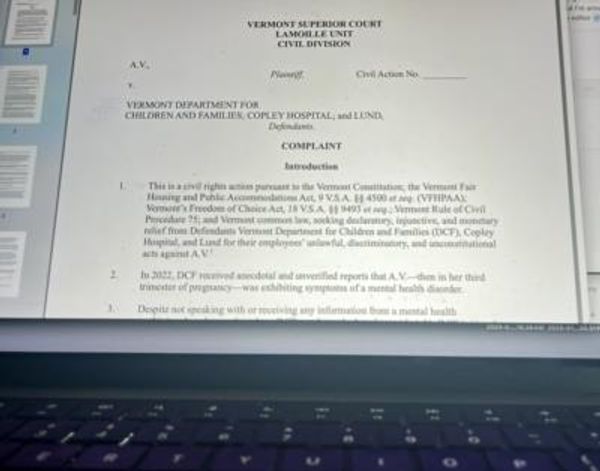
A resolution to the high-profile court case between independent MP Monique Ryan and her chief of staff, Sally Rugg, continues to hang in the balance, after the pair were granted a two-week extension to mediation as negotiations yesterday failed to reach a settlement.
Appearing before the Federal Court on Friday morning, both parties asked for more time to explore promising “terrain” on the “substantive matters” at the centre of the workplace dispute, after a “robust exchange of views” on Thursday failed to secure an outcome.
Nick Harrington, acting for the Commonwealth, said he held “great optimism” that two more weeks would be enough time to settle the claim in full, after a four-hour session left the door open to the parties to “develop the path we were walking on”.
Justice Debra Mortimer agreed to the orders, which came with an extension to the ongoing suppression of affidavits and submissions to third parties or the media, “until those affidavits have been read and relied upon in open court”. Rugg will hang onto her employment and be paid miscellaneous leave until at least March 3, when the matter returns to court.
“In this proceeding, none of the affidavits that have been filed have been read and relied upon in open court,” Justice Mortimer said.
“That is because Ms Rugg’s interlocutory application has not yet proceeded to a hearing because the parties continue to attempt to negotiate an outcome to the proceeding.”
Rugg, an activist and leading advocate for marriage equality in Australia, launched a suit against Ryan in the Federal Court late last month over an alleged breach of the Fair Work Act’s “general protections” provisions.
In documents lodged with the court on January 25, Rugg sought to prevent Ryan’s attempts to dismiss her following a dispute over working hours.
Rugg claimed she was denied her workplace right of refusing to “work additional hours that were unreasonable” and that the Commonwealth engaged in “hostile conduct in the workplace” as a result.
In court documents, Rugg alleges Ryan was the “principal actor” in the above allegations.
Ryan has remained relatively tight-lipped about the case.
This week, she sent a video message to her followers on Twitter, saying she had been busy meeting with members of the ABC about funding, along with putting in work on the National Library and climate change. “We’ve been busy,” she wrote.
For Rugg’s team, the dispute could emerge as a test case for professions where working excessive hours is normalised and many aren’t aware of their legal right to refuse, The Age reported.
In an interview, Rugg’s lawyer Josh Bornstein noted previous disputes pegged to the provision of the Fair Work Act, which allows employees to refuse unreasonable, additional hours beyond an eight-hour working day, have settled without trial.
He said the settlements have prevented the court from handing down a decisive ruling that challenges toxic workplace culture, where exhaustive working conditions are worn as a badge of honour.
“When you get into that sort of snarking and sniping, it’s an indication of how enculturated we are to people working sometimes ludicrously unsafe long hours,” he told The Age.
Sources cited by the paper with knowledge of the relationship between Rugg and Ryan said there were a series of tasks or duties that Rugg either refused or was unable to find time for, after Prime Minister Anthony Albanese cut staffing allocations for independent MPs from four to just one.
As a result, Rugg was hired as Ryan’s chief of staff but expected to carry out the duties of a policy adviser, media adviser, and speechwriter, all on top of her regular workload.
Last week, a new code of conduct for federal parliamentarians took effect, as an outcome of sex discrimination commissioner Kate Jenkins’ report into the workplace culture of Parliament House.
In an Instagram post to a list of some 300 close friends, Rugg said she was “devastated” to have only just missed out on the code, but was glad to see them adopted and put in place for current and future staff.
“Every day since I left this job that I so deeply loved has been an immense struggle,” she said. “Today, the Parliament affirmed the new code of conduct for all MPs, a landmark achievement that took thousands of political staff years of work and advocacy.”







